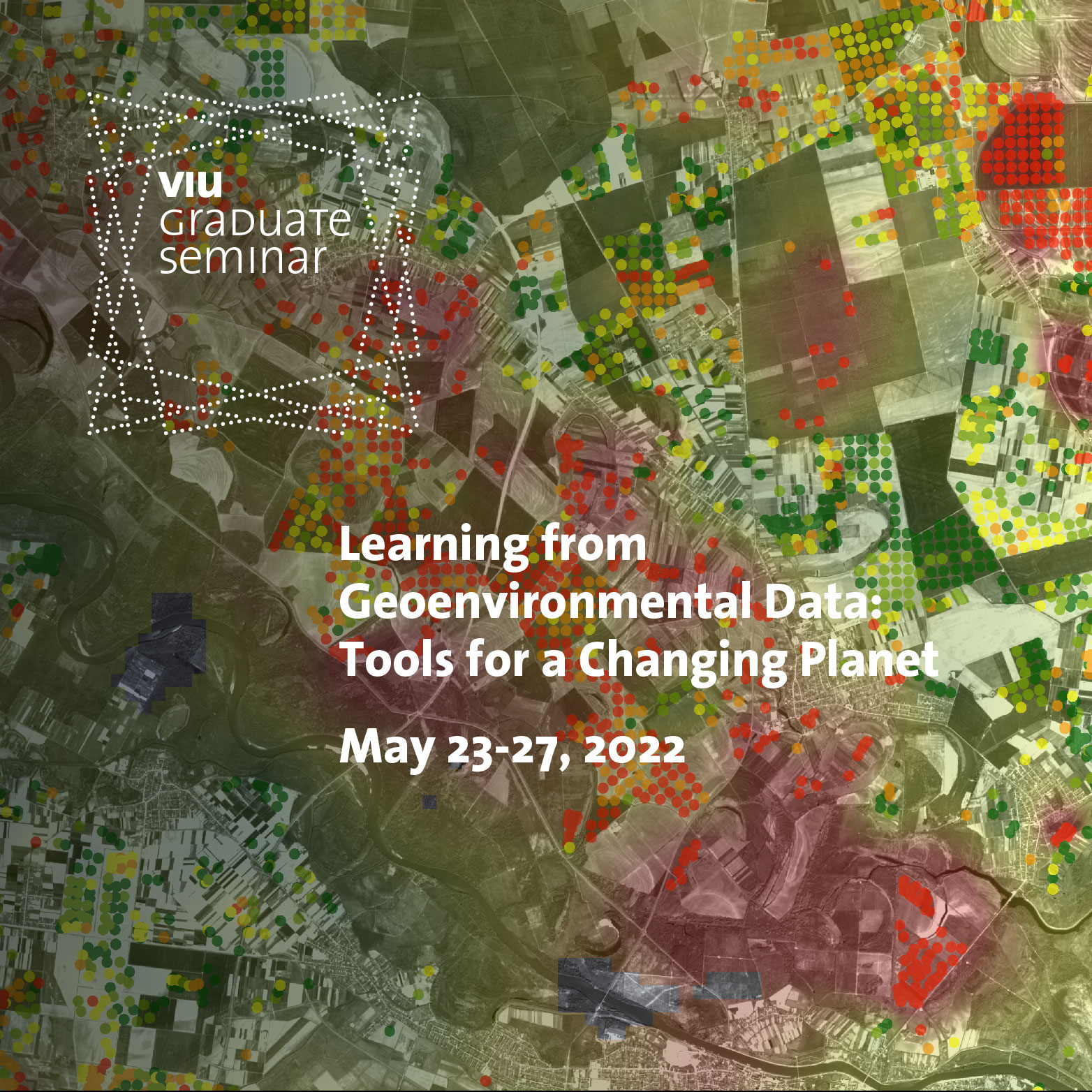May 23-27, 2022
This Graduate Seminar will be led by:
- IUAV University of Venice, Italy
- University of Lausanne, Switzerland
- Ca’ Foscari University of Venice, Italy
The interactions between geoenvironmental and anthropic processes are increasing due to the ever-growing population and its related side effects (e.g., urban sprawl, natural resource and energy consumption, etc.). Natural hazards, land degradation, environmental pollution and climate change are some of the most evident results of the “interactions” between geosphere and anthroposphere. At a finer spatial scale, geo-environmental and geo-engineering issues in urban contexts or in the proximity of infrastructures represent a wide set of challenges that directly affect the critical zone. In this context, spatial and spatiotemporal data are crucial for the analysis, modelling and forecasting of the possible interactions between human activities and the geoenvironment.
Faculty
Sebastiano Trevisani, Iuav University of Venice (Scientific Coordinator)
Mikhail Kanevski, University of Lausanne (Scientific Co-coordinator)
Pietro Daniel Omodeo, Ca’ Foscari University of Venice (Scientific Co-coordinator)
Marj Tonini, University of Lausanne (Scientific Co-coordinator)
Dario Camuffo, National Research Council of Italy
Donata Canu, Istituto Nazionale di Oceanografia e di Geofisica Sperimentale OGS
Paolo Fabbri, University of Padua
Carlo Giupponi, Ca’ Foscari University of Venice
Francesco Luzzini, Ca’ Foscari University of Venice / Johns Hopkins University
Thomas Turnbull, Max Planck Institute
Andrea Trucchia, CIMA Foundation
Georg Umgiesser, National Research Council of Italy
Topics
- Theoretical and practical introduction to the main techniques of spatial geoenvironmental data analysis
- Role of geoenvironmental data and observations for the characterization, analysis and modelling of the environment from historical times to present
Learning outcomes
- To highlight the relevance on the quantitative use of geoenvironmental data in the context of sustainability and management of the environment in current and historical times
- To provide a basic knowledge in spatial data analysis, with elements of geostatistics and machine learning, permitting further autonomous development
- To highlight the role of expert-knowledge on the application of geocomputational approaches
- To furnish an overview on the characteristics of geoenvironmental data and on the potential sources of environmental information, including historical sources
- To stimulate a wide and holistic view on geoenvironmental and geoengineering issues
Who can apply?
This Graduate Seminar is offered to advanced Master and early PhD students in Earth/Environmental Sciences, Biology and Spatial Ecology, Physical Geography. Applicants from humanities-related disciplines with computational skills and sound mathematical knowledge will be considered. Participation of young researchers is also welcome. Participants should have a basic knowledge of mathematics and statistics; skills with geographical information systems and basic notions in R programming language would be a benefit. Student participants will need to bring their own laptops for the practical parts of the seminar.
Fees & grant support
Students from the VIU member institutions will pay no participation fees. Grant support is also available to support, partially or fully, the costs of international travel and accommodation.
Excellent candidates from non-member institutions will be also considered and evaluated, although these candidates will pay fees and are not eligible for financial support. VIU Alumni are eligible for a reduced fee.
Applicants must submit the application form, a letter of motivation – which should include a brief description of the candidate’s research interests, a curriculum vitae and a photo.
For further information please download the Brochure and the Program or write to: summerschools@univiu.org
As the COVID-19 pandemic is ongoing, VIU will continue to monitor the situation; should it prevent international travel or the confirmation of the program on campus as scheduled, other practicable solutions will be evaluated. Applicants and confirmed participants will be informed of any changes.




























